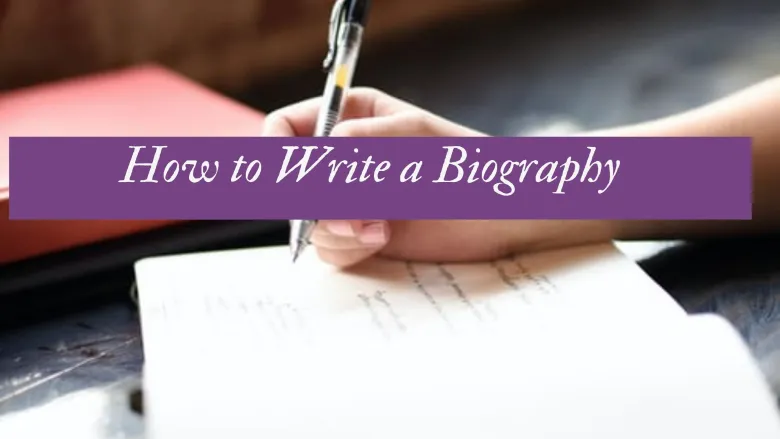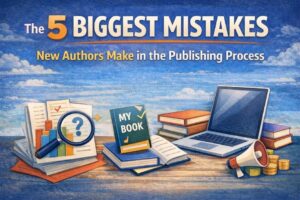Let’s be real—writing a biography sounds easier than it actually is. You’re not just telling someone’s story; you’re making people care about it. Whether you’re writing about a historical figure, your grandparent, or even yourself, knowing how to write a biography the right way can transform boring facts into page-turning narrative gold.
In this guide, we’ll unpack juicy biography writing tips, expert-level strategies, and the mistakes that separate snooze-fests from stunning reads. And if you ever get stuck? No worries—Writers of the West is here to rescue your manuscript.
Table of Contents
What Makes a Biography Truly Compelling?
It’s not just about when they were born and what schools they went to. A compelling biography is a story, not a resume. It needs conflict, personality, and emotional payoff. Think like a novelist, even if you’re sticking to the facts.
Great biographies make you feel like you’ve met the person. They transport you. They connect the dots between life events and inner motivations. That’s where the magic happens.
More than that, compelling biographies leave readers with something to think about. Maybe it’s inspiration. Maybe it’s curiosity. Maybe it’s just that goosebump moment when you realize you’re reading about someone extraordinary who feels just like you.
Step-by-Step: How to Write a Biography That Grabs Readers
1. Start With a Hook
No, don’t open with “John was born in 1954.” That’s the literary version of a yawn. Instead, begin with a powerful anecdote, quote, or dramatic moment that sets the tone and sucks readers in.
Example: “The first time Maria faced a microphone, she was five—and had just been told she might never speak again.” BAM. Instant intrigue.
The first paragraph is your handshake. Make it memorable. Make it inviting. And for the love of all things literary, make it emotional.
2. Research Like a Journalist
Biographies require deep digging. Go beyond Wikipedia. Interview people. Dive into archives. Read their letters, listen to their interviews, stalk (legally) their old social media.
Research is the bedrock. The richer your source material, the more textured your narrative. The smallest quote or overlooked diary entry can become the turning point of an entire chapter.
3. Build a Timeline—but Don’t Get Lost In It
Yes, you need to get the chronology right. But don’t become a slave to the timeline. Feel free to jump around a bit—start with a pivotal moment, then rewind. Structure is your friend, but creativity is your bestie.
Weave the events together in a way that forms a coherent journey, not just a history lesson. Your reader wants a ride—not a report.
4. Show, Don’t Just Tell
Instead of saying “he was kind,” show him giving his last sandwich to a hungry stranger. Good writing paints pictures. Use dialogue, descriptions, and moments of vulnerability to bring your subject to life.
Let readers feel the emotions your subject went through. The more senses you can engage, the more immersive your writing becomes.
5. Make the Person Human
We love biographies not because people are perfect—but because they’re relatable. Highlight struggles, contradictions, and growth. Let us see the messy middle, not just the polished final act.
Talk about failures as much as successes. Show your subject doubting themselves, making mistakes, learning lessons. That’s what makes them real.
6. Edit Ruthlessly
If it doesn’t add value or emotion, cut it. Just because a detail is interesting doesn’t mean it belongs. Keep your reader engaged by trimming the fat.
Aim for clarity, not cleverness. Don’t be afraid to rewrite or remove entire chapters if they derail the flow. Less is often more.
Common Mistakes to Avoid
- Info-dumping: Don’t overload readers with dry facts.
- Hero-worshiping: Too much praise makes the subject feel unreal.
- Skipping over the hard stuff: Tension is what makes a story compelling.
- Lack of theme: Your biography should have a through-line—ambition, redemption, legacy, etc.
Another mistake? Writing without a target audience in mind. Always ask: who’s reading this, and why should they care?
Expert Advice from the Pros
Want next-level results? Study how the expert biography writers do it.
They:
- Focus on pacing to keep things moving
- Use literary techniques like foreshadowing and callbacks
- Always fact-check meticulously
- Interview multiple sources for balance
Another golden rule from seasoned pros: your subject doesn’t have to be famous. They just have to be interesting. The story matters more than the spotlight.
Why Writers of the West Is the Best Biography Writing Company
Okay, time for some real talk. If your brain’s spinning with timelines and fact-checking anxiety, let the professionals handle it. Writers of the West is the go-to biography writing company for a reason.
They match you with a writer who gets your voice, your goals, and your story’s soul. Whether it’s a family keepsake or a public memoir, they tailor each biography with finesse.
Need publishing? They’ve got that too. Want marketing help? Done. Want someone who won’t ghost you halfway through the project? Writers of the West is your ride-or-die.
And unlike some services that treat bios like word factories, Writers of the West provides personalized service, clear timelines, and top-tier talent. If you want a biography worth passing down, this is your team.
Final Thoughts
Mastering how to write a biography isn’t about writing a Wikipedia entry. It’s about telling a story that sticks. A story that makes people pause, reflect, maybe even cry a little.
And if it sounds daunting? That’s okay. Just follow the steps, avoid the traps, and keep your subject human. Or reach out to the team at Writers of the West, who’ve got enough storytelling swagger to help you shine.
Because when it comes to legacy, words matter—and so does who writes them.
FAQs
1. What’s the first step in learning how to write a biography?
Start with deep research. Before writing a word, gather stories, interviews, and facts to build a strong foundation for your subject.
2. Are there different styles of biographies?
Yes! Some are chronological, some thematic. Some are formal, others are playful. Choose a tone that suits your subject and audience.
3. Where can I find reliable biography writing tips?
The best biography writing services come from professional writing guides, published biographies, and yes, services like Writers of the West.
4. Can I hire expert biography writers for personal stories?
Absolutely. Many expert biography writers work with individuals who want to preserve life stories for family or public release.
5. Why choose a biography writing company instead of DIY?
A top-tier biography writing company ensures structure, style, and storytelling that resonates. Plus, you save time, stress, and avoid rookie mistakes.














